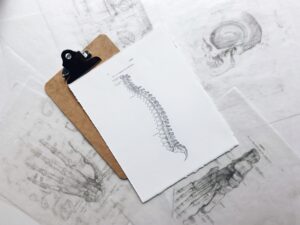If you’re struggling with back pain, you can take comfort in knowing that you are not alone. According to Georgetown University’s Health Policy Institute, an estimated 65 million people in America have reported experiencing back pain at one time or another. Of those, approximately 16 million reported experiencing chronic or persistent back pain that significantly interferes with their day-to-day life. That being said, several health problems can contribute to back pain, including arthritis and osteoporosis. Back pain can also be brought on by any of the following:
- Skeletal irregularities
- Muscle or ligament strains
- Bulging disks
- Ruptured disk
CAN EXCESSIVE GAS CAUSE BACK PAIN?
While seldom discussed, several studies have also linked back pain to excessive gas. In fact, bloating, which is a condition brought on by air or gas filling the gastrointestinal tract, is responsible for a large percentage of cases involving back pain in America. For some people, the same stomach pain associated with excessive gas can radiate to the lower back and even the neck. And the pain can be exacerbated by gastrointestinal diseases, some of which include ulcerative colitis, Crohn’s disease, and diverticulitis. The following health problems can also trigger bloating and back pain:
- Liver disorders
- Pancreatic cancer
- Abdominal aortic aneurysms
WHAT YOU SHOULD KNOW ABOUT BLOATING AND GAS
Even without underlying health problems being a factor, everyone experiences bloating and gas from time to time. For those who are otherwise healthy, the gas that forms in the gastrointestinal tract can sometimes be the result of swallowing too much air, which is often caused by chewing gum, smoking, or wearing ill-fitting dentures. Also known as aerophagia, swallowing too much air can even stem from eating or drinking too quickly.
Along with aerophagia, gas can form in the gastrointestinal tract when the food that we consume is not digested thoroughly. Normally, after chewing and swallowing, food moves to the small intestines. There, it is further broken down by the small intestines. However, the small intestines cannot completely break down carbohydrates due to a lack of certain enzymes. These foods that are not broken down by the small intestines eventually move to the large intestines and are broken down and absorbed by bacteria. While this is a natural process, it can trigger excessive gas due to an increase in hydrogen and carbon dioxide production. Whether gas is caused by aerophagia or undigested food moving into the large intestines, the body will work to rid itself of it by causing belching, flatulence, or both. And for some individuals, these events may trigger or even worsen back pain.
WHEN SHOULD YOU BE SEEN BY A PHYSICIAN?
In most cases, taking over-the-counter medication to resolve chronic gas can help ease back pain. For example, antacids are effective in neutralizing gas-causing stomach acids. Anti-flatulent drugs, such as Gas X, for example, can help ease feelings of fullness, painful pressure, and bloating, all of which are responsible for flatulence and belching. More often than not, resolving the buildup of gas in the body will indirectly relieve or eliminate back pain. Of course, if these over-the-counter medications do not provide relief, it would be a good idea to be seen by a physician as soon as possible as excessive gas could signify a serious underlying health problem.
DIAGNOSING EXCESSIVE GAS
If a physician can rule out underlying health issues as the cause of excessive gas, he or she will then perform the following tests to identify possible problems in the patient’s digestive tract:
- A stomach x-ray
- A sigmoidoscopy
- A colonoscopy
Along with stomach x-rays, sigmoidoscopies, and colonoscopies, many physicians will perform an upper gastrointestinal series. This type of exam can help identify the root cause of excessive air swallowing if a patient is complaining of chronic belching. In some cases, a physician will also perform food allergy tests to determine whether or not a patient’s diet is causing excessive gas.
BOTTOM LINE
All in all, multiple things, including excessive gas, can contribute to back pain. Fortunately, there are treatments available that can help resolve both of these health problems. To learn more about any of the information detailed in this article or to schedule a consultation, consider speaking with one of our friendly and knowledgeable associates today at 205-637-1363.







